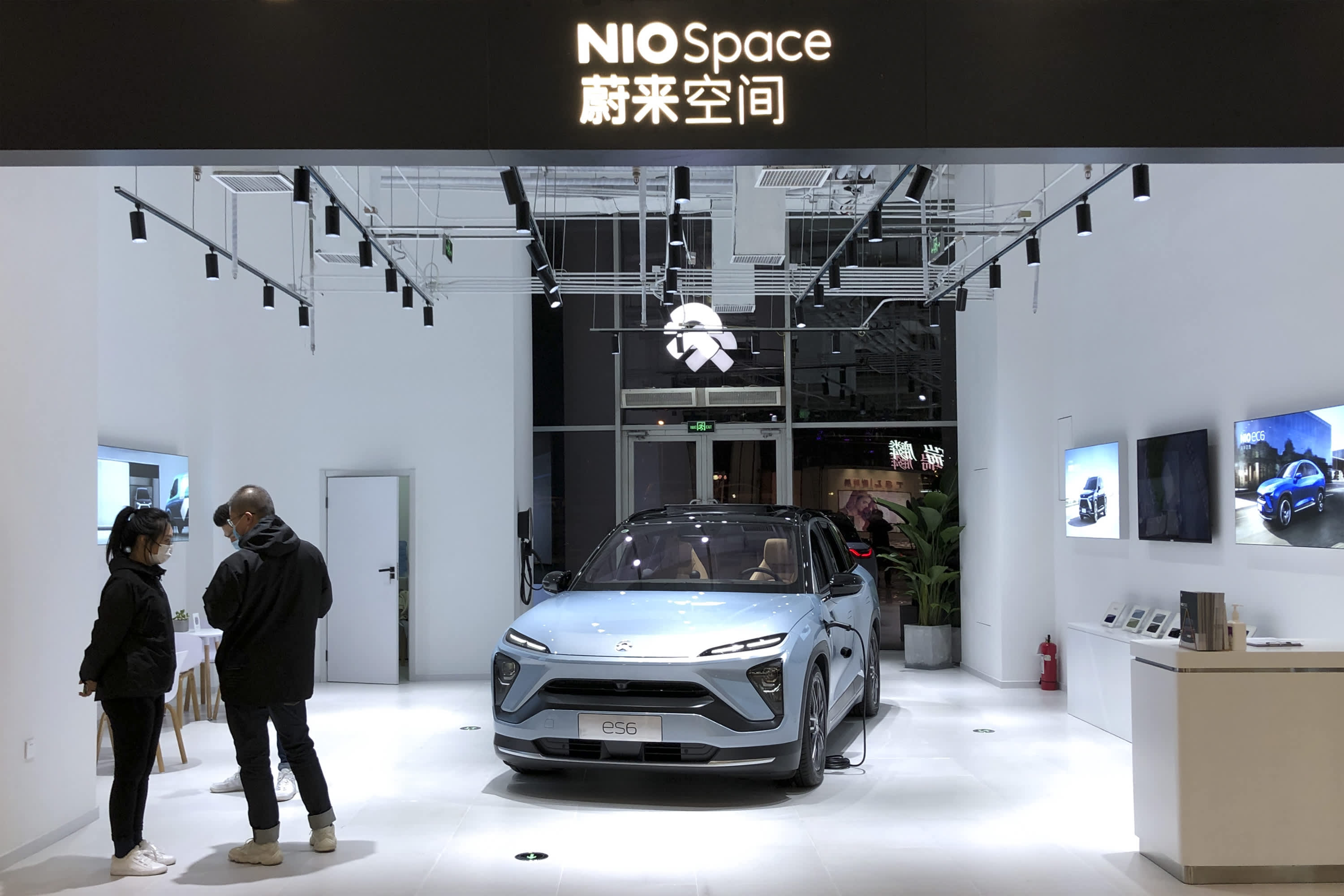
GUANGZHOU, China — Nio and Xpeng deliveries dropped in August as the chip shortage and supply chain constraints hit the Chinese electric vehicle makers.
Li Auto was the only company out of the three to register month-on-month growth.
Nio delivered 5,880 vehicles in August, down from 7,931 cars in July. The company also cut its third-quarter delivery forecast on Wednesday from between 23,000 to 25,000 vehicles to between 22,500 to 23,500 units. Nio blamed the “uncertainty and volatility of semiconductor supply” as the global chip shortage continues.
Nio said, however, new orders reached an all-time high in August. The company’s shares closed 0.59% lower in the U.S. on Wednesday.
Xpeng said it delivered 7,214 vehicles in August, down from 8,040 in July. Xpeng’s Hong Kong-listed shares fell 5% in Thursday trade.
During the month, the company began to transition production for its G3 sports utility vehicle to the G3i, an updated version of the car, at its factory in Zhaoqing, south China.
“As a result, some planned deliveries of the G3 were affected in August. The Company expects to start deliveries of the G3i to start in September,” Xpeng said.
In an earnings call last month, Xpeng CEO He Xiaopeng said that supply chain challenges like the semiconductor shortage remain the “biggest production hurdle” for the company.
The CEO also said he expects monthly delivery volume could reach 15,000 in the fourth quarter, which would be more than double August’s number.
Meanwhile, Li Auto said in August it delivered 9,433 units of its Li ONE car, the only model it has on the market. That’s up 9.8% from July.
The Hong Kong-listed shares of Li Auto were down 2% in afternoon trade on Thursday.
As of Aug. 31, Nio had delivered 55,767 cars, Xpeng had delivered 45,992 vehicles, and Li Auto had delivered 48,176 units.
The global chip shortage continues to hit automakers. Tesla CEO Elon Musk said that the company would be delaying deliveries of its new Roadster until 2023.
Source: CNBC
